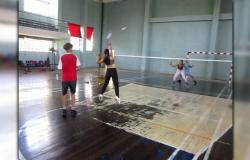Last Saturday we decided to spend the long weekend in Santa Marta. Everything was going well until we reached the town of Pueblo Viejo. As is customary, the residents had taken to the road, because they had been without electricity and water for a long time.
With the driver we saw the possibility of entering through a variant entering the town. It made me curious because, about thirty years ago, together with the national director of Family Welfare, Jaime Benítez, we set up the first Community Welfare Homes. Once we entered the township, residents crossing ropes in the street began to charge us a large amount of tolls until we reached a place where about thirty people blocked our path with stones. The problem was solved thanks to a mediator, where each car contributed ten thousand pesos.
In that half hour of tension, I began to reflect, and it is hard to believe that returning to a place thirty years later and nothing has changed: the precarious housing, the streets full of mud and stagnant water, in those moments without water or light, and people with a disheveled appearance. A poverty that makes you want to cry, the only change is that now there are more precarious houses, some Venezuelan migrants, and sadness and some anger can be seen on the faces of young people and adults.
Where are the resources that different governments have allocated to reduce poverty in the last thirty years? Why are Tasajera, Pueblo Viejo and Ciénaga still the same or worse? If that money had been given through direct transfer to people, they would surely be better off.
Paradoxically, I am reading the book Power and progress, by the authors Acemoglu and Johnson, where they refer to what they call the progress train, to describe the shared benefits generated by the simple idea of productivity. By increasing productivity, more jobs, better salaries and greater well-being are generated.
This train of progress in Colombia is broken. There is an abyss that separates millions of Colombians who live in poverty. While the world of progress has incredible tools such as magnetic resonance imaging, the Internet, vaccines, industrial robots, nuclear submarines, and controls deadly diseases, such as tuberculosis and pneumonia, the great concern of the inhabitants of Tasajera and Pueblo It’s probably old if we’re going to be able to eat today.
Some time ago I read an essay in which they pointed out that Colombians were orphans, lacking a protective State, lacking the political will to help its inhabitants escape poverty. It is enough to look at the concerns of the political class these days, while many inhabitants are suffering from shortages and violence, the political agenda has been focused on the possibility of a constituent assembly or if President Petro seeks re-election. Definitely, the country’s progress train is still broken.






